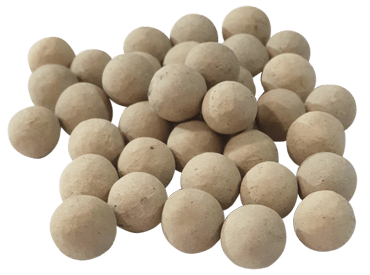Ceramic Balls: Explore Our Range of Materials, Sizes, Hardness & Densities

Ceramic spheres represent a recent enhancement to our comprehensive portfolio of high-quality products and solutions. Manufactured from a diverse selection of ceramic materials, these spheres offer superior stiffness, reduced thermal expansion, lower mass, enhanced corrosion resistance, and increased electrical insulation compared to steel spheres. We provide ceramic spheres in a comprehensive range and at competitive price points for our international clientele.
What Are Ceramic Balls Made Of?
Ceramic balls are precisely engineered spherical components made from advanced ceramic materials. Unlike traditional metal balls, they offer a unique combination of properties like high hardness, low weight, exceptional resistance to wear, corrosion, and high temperatures, and are often electrically insulating and non-magnetic. The specific material used dictates the final characteristics and best-suited applications. Common ceramic materials for balls include:
- Alumina (Aluminum Oxide, Al₂O₃): One of the most widely used due to its excellent electrical insulation, high hardness, superior wear and corrosion resistance, and thermal stability.
- Zirconia (Zirconium Dioxide, ZrO₂): Known for its high fracture toughness, wear resistance, and ability to withstand high temperatures and pressure. Some zirconia grades exhibit “transformation toughening,” making them exceptionally durable under stress.
- Silicon Nitride (Si₃N₄): Favored for its high strength, wear resistance, ability to withstand high temperatures, low density, and non-magnetic properties, making it ideal for high-speed bearing applications.
- Silicon Carbide (SiC): Exhibits extreme hardness, excellent wear resistance, high-temperature strength, and good thermal conductivity.
- Glass Ceramics (Silica, SiO₂): Offer good chemical stability and can be used in specific applications like moisture absorption (desiccants).
How Are Ceramic Balls Produced?
The manufacturing process typically involves shaping ceramic powders into spherical forms through compression molding or other techniques, followed by sintering at high temperatures to solidify and strengthen the material. Precision grinding and polishing ensure the desired size, shape, and smooth surface finish.
What Are Ceramic Balls Used For?
The unique properties of ceramic balls make them suitable for a vast array of applications across various industries:
- Bearings: Especially in high-speed, high-temperature, corrosive, or non-magnetic environments where steel bearings may fail. Silicon nitride and zirconia are commonly used.
- Grinding Media: In ball mills and other grinding equipment for processing materials like chemicals, pharmaceuticals, paints, and minerals due to their hardness and resistance to contamination. Alumina and zirconia are typical choices.
- Valves: Their hardness, wear resistance, and chemical inertness make them ideal for check valves and other valve components, especially in corrosive fluids.
- Pumps: Used in various types of pumps to handle abrasive or corrosive liquids.
- Sealing Applications: Their precision and resistance to wear contribute to effective sealing in various equipment.
- Flow Meters: Used as components in flow measurement devices.
- Medical Devices: Biocompatible ceramic balls are used in prosthetics and surgical instruments.
- Aerospace: Their lightweight and high-temperature resistance make them suitable for aerospace bearings and other components.
- Automotive: Used in various automotive systems like airbags, seatbelt mechanisms, and high-performance bearings.
- Electronics: Their electrical insulation properties are valuable in certain electronic applications, including wafer handling.
- Desiccants: Silica-based ceramic balls can be used to absorb moisture in controlled environments.
- Agitator Balls: Their corrosion resistance and density make them suitable for mixing applications, such as in aerosol cans.
- Calibration and Measurement: High-precision ceramic balls are used as master balls and calibration standards in coordinate measuring machines.
In summary, ceramic balls, made from various advanced ceramic materials, offer superior performance characteristics compared to traditional metal balls in demanding applications requiring hardness, wear resistance, chemical inertness, high-temperature stability, and low density. The specific type of ceramic material is carefully selected to match the requirements of the intended use.
Quality You Can Trust, Performance You Can Measure: We don’t compromise on quality. Every product in our portfolio is rigorously vetted for high performance and longevity, delivering tangible results you can see and measure in your operational efficiency and output quality. Invest in lasting value with AP Air & Liquid.
